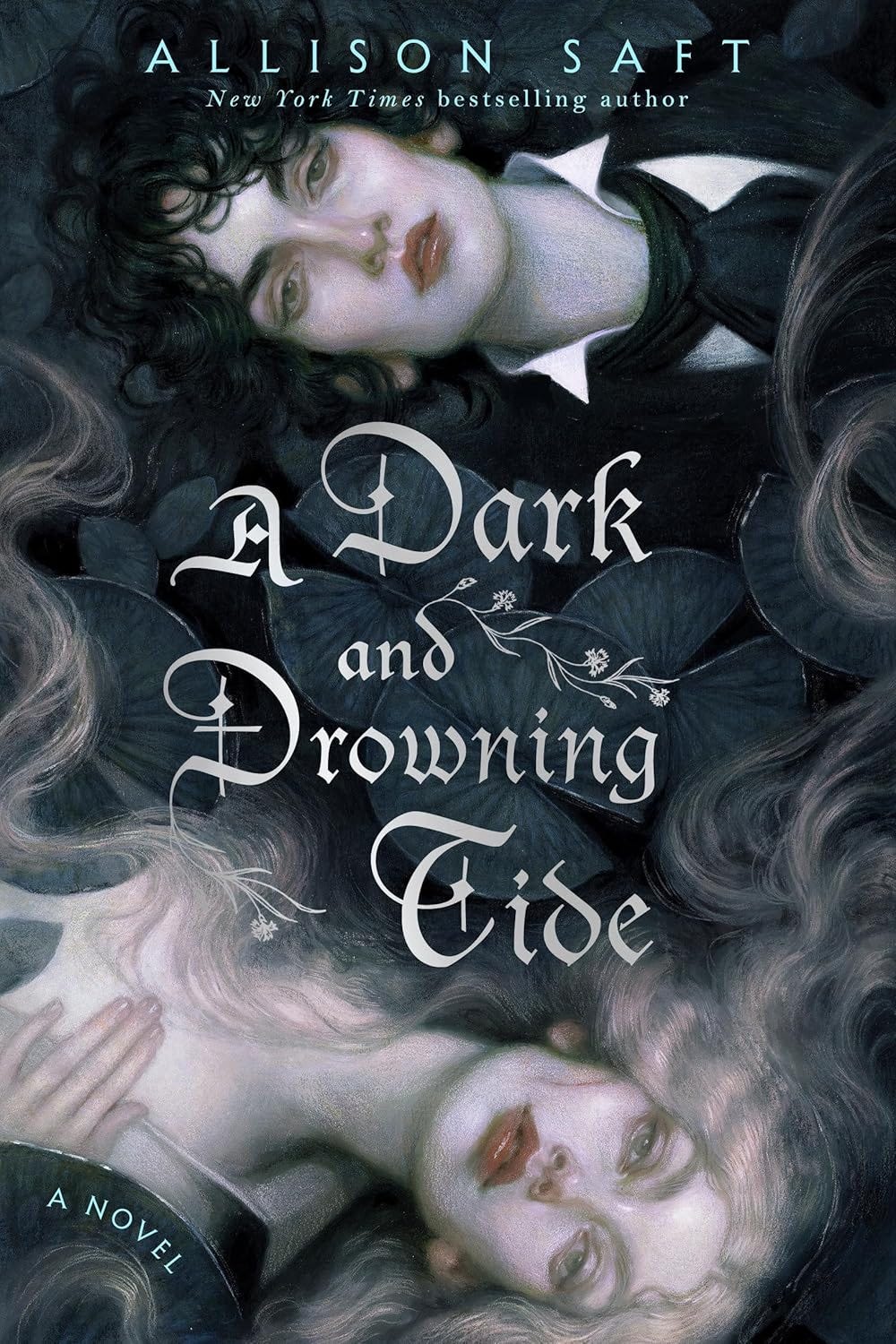A Dark and Drowning Tide (Spoiler Review & Discussion)
Allison Saft's sapphic dark academia darling is (almost) worth the hype.
Guys, we finally have our sapphic dark academia novel, and it comes with a smexy cover. A Dark and Drowning Tide is at its best when it revels in its unapologetic embrace of well-worn TikTok tropes. We have enemies-to-lovers academic rivals embroiled in a murder mystery where they can only trust each other, but one of them is a gloomy ass and the other is a manic pixie dream girl.
Lorelei Kaskel is a folklorist at Ruhigburg University. She once dreamed of becoming a naturalist, but her identity as a Yeva—a second-class citizen in Bruunestaad—prevents her from leaving her country. Haunted by a tragic past and condemned by a world that fears her kind, Lorelei only has one goal: prove her worth in the upcoming expedition and secure herself a place in court, where she’ll finally be granted the rights of a true citizen.
As a cobbler’s daughter plucked from obscurity, Lorelei is a black sheep among her peers—all nobles who spent their childhood frolicking with the King. But it is Sylvia, the ditzy, white-haired princess of Albe, who earns the brunt of Lorelei’s animosity. Beautiful and beloved, Sylvia moves effortlessly through the world, indulging in her whims as a naturalist, a living reminder of everything Lorelei is not and will never be.
At first, I wasn’t pleasantly surprised by—or particularly endeared to—Lorelei’s one-sided rivalry with Sylvia. I’m used to their positions swapped, the more empathetic and likable character playing the protagonist while the dark, mysterious figure is relegated to the love interest. There’s probably a time-honored rule that goes something like this: It’s sexy to want the bad boy, not as sexy to be the bad boy.
But hello??? Sylvia simps for Lorelai so much? And I kind of love it? Like, you guys have no idea. You could sell me on any romance where the love interest has a one-sided crush on the main lead. It’s one of my favorite tropes, period. I’m obsessed with the little moments we get leading up to Sylvia’s confession. Lorelai’s perverse realization that she likes having Sylvia at her mercy, Sylvia’s demureness whenever Lorelai takes off any article of clothing, Sylvia’s protectiveness of Lorelai…I’m grinning like an alp.
They’re terrible for each other, and that’s exactly why they can’t stay away. Sylvia could have anyone, but she wants Lorelai because Lorelai hates her. She loves Lorelai, in all her tall and gloomy effigy, precisely because Lorelai is like something out of a nightmare. Lorelai revels in having Sylvia at her mercy, and Sylvia likes being at her mercy. Sylvia and Lorelai aren’t chasing a fairy tale romance, they’re two fucked-up survivors chasing destruction.
I have a theory that people’s feelings about A Dark and Drowning Tide will depend almost entirely on how much they enjoy Sylvia and Lorelai’s relationship. While the murder mystery and the remaining cast are compelling in their own ways, there’s just too much world-building for the story’s conflicts to be resolved satisfactorily in one novel.
The crux of Lorelai’s character is shaped by her experiences as a Yeva, an ethno-religious minority in the world of the novel, Sylvia’s homeland of Alp agitates for their independence from Bruunestaad, and several of the remaining regions, along with their respective lords and ladies, have their own discontents with the kingdom.
A Dark and Drowning Tide wants to forefront these discontents as motivations for sabotaging the expedition to find the Urspring—a mythical resource that would grant untold power to the King if found—but it doesn’t want to reckon with them. Or rather, it can’t. Because it is trying to be Lorelai and Sylvia’s story, not Bruunestaad’s story.
As the pages whittle down at a distressing rate, it becomes apparent that it would be a monumental task for A Dark and Drowning Tide to address the social-political themes it had unwittingly introduced into its story. The plot makes a valiant effort anyway. Adelheid is revealed to be the murderer and killed, despite raising reasonable concerns about what would happen to the kingdom once Wilhelm gains access to the Urspring.
The novel cleans itself up in the next twenty pages. Sylvia is chosen by the Urspring (no surprises there). Despite greeting Sylvia and the surviving members of the expedition with soldiers, Wilhelm is surprisingly conducive to negotiations. Sylvia escapes engagement to the King as the new (but still ostensibly loyal) ruler of Albe, while Lorelei achieves her dream of receiving the title of shutzyeva at court. They reunite in the final chapter, declare their undying love to each other, and live happily ever after.
My writing professor would call this ending “melodramatic.” Melodrama is the moment we see the author’s hand reach down and march his or her characters toward a predetermined end, when the characters’ actions and outcomes don’t necessarily fit with their established motivations. Everything just seems to wrap up into a neat little bow too well, and it breaks the reader’s suspension of disbelief. Really? Wilhelm just lets them go? Sylvia is happy working for him, and Lorelei doesn’t have any grander ambitions?
Also, no amount of pre-established lore can convince me that Lorelai’s daft enough to send Wilhelm the love letters Sylvia wrote to her for months on end. I know you’re trying to be cute, but it’s not working.
Following a slow start, I devoured A Dark and Drowning Tide from beginning to end. It was the perfect novel for me when I was looking for some unhinged, twisted sapphic drama. The ending doesn’t quite hit the mark, but I was happy enough to see Lorelei and Sylvia get their happy ending that I could almost forgive it. Make no mistake, A Dark and Drowning Tide is first and foremost a love story.
As always, please leave your thoughts in the comments!




